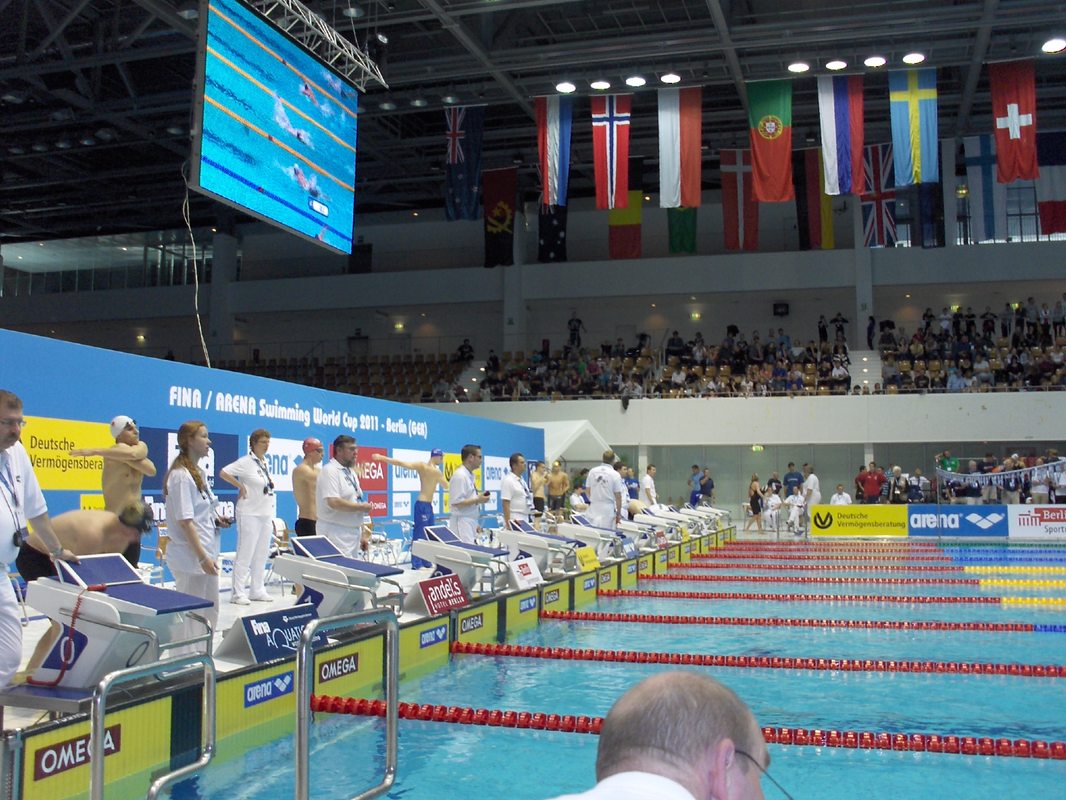|
FAZ Olympic Supplement
|
"Athletes do not give up"Former Tennis-Pro and Sports-Psychologist Eva Pfaff about losing.
Mrs Pfaff you were a successful tennis player, your best world ranking was No. 17. Did you experience a defeat during your career you didn't forgive yourself? I've actually forgiven myself all defeats, even if some match points in major tournaments are still in my memory. I was not prepared to be a competitive athlete. That was an advantage. After my graduation I decided to try to play Tennis tournaments, but my expectations were correspondingly low. The more I achieved, the more I was pleased. On the other hand, defeats didn't really throw me off. For athletes, who train for years to achieve a certain level, the situation is probably different. How do those athletes deal with losses ? The way one copes, depends mostly on how long your are in competitive sports. With young people, like gymnast Florian Hambüchen, defeats often lead to a reaction "I will try again !!". But athletes, having spent a lot of time in sports and who are perhaps tired, can take a defeat as an opportunity to withdraw from sports and to give their lives a new direction. That could be the case with canoeist Andreas Dittmer. However, it is easier to quit on a voluntarily basis instead of a defeat or injury. |
|
WEG Dressage, Lexington, USA
|
Some athletes got derailed through such an involuntary resignation.
Sure, but actually those cases are rare. Generally after an involuntary resignation a new and re-orientation follows - athletes do not resign !! They are motivated and remain stable in other areas of life. In sporting life athletes are overcoming obstacles and cope with resistance. Athletes having learned that from an early age, usually have a strong and resisting character. Are athletes better prepared for losses by profession than others ? Not necessarily, it depends on which level they compete at in sports. If they are at the top and seldomly lose, defeats are unfamiliar for them. Roger Federer is a good example. He has lifted his own and the public scale through his wins onto a high level. One forgets easily, how difficult it probably is for him to stay at this level. The public expectation is like an additional backpack, which he carries around. If he loses, people are shocked. But that way expectations are lowered again. |
|
Swimming World Cup, Berlin
|
Doesn't the sole identification with sports bear a great risk for the future life as an athlete ?
Yes, but the risk is part of the high-performance sports. Young people deciding to test the limits in sports, walk on a fine line. That's what appeals to spectators. And it should be an obligation to show interest for the loser. A few athletes minimize the risk to depend on sports only, through building a life outside of sports. At the same time sports is so professional, that it is difficult to compete at a high level and to work a job or get an education. What should be done ? True, but that's not impossible. In some sports-disciplines - such as rowing, hockey and swimming - athletes can train several times a day and still invest time in studying. But the pressure is growing and the international competition is stronger. And if athletes aren't up to the competition - the German swimmers are accused of that - it becomes more difficult to maintain world level. Interview by Lena Bopp. www.faz.net... |













